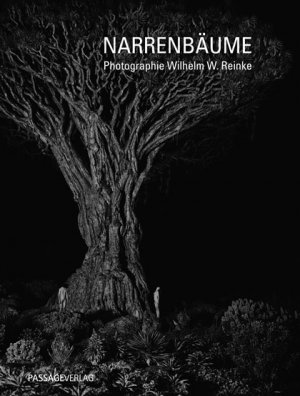
In the book NARRENBÄUME, Wilhelm W. Reinke addresses the ambiguous relationship between human and nature. Naked people are sometimes in a unity and sometimes in contrast to expressive trees - as a symbol of pure nature.
In the relationship of human beeings to nature, the tree has always played a symbolic role, just think of the "tree of knowledge" or the concept of the "family tree". People who live surrounded by trees are happier, healthier and live longer. Trees provide shade, improve the climate and enrich the body and mind. Humans as a "fool" are destroying the diversity of the habitat tree and nature.
These thoughts were taken up in the photo production and in the end are intended to stimulate the viewer to reconsider his behavior towards nature at least for a moment. In the contrasts light and shadow, black and white, light and dark, the "light painter" Reinke shows the mutual assignment of these connections. The idea of "not eating out of the tree of knowledge" should be interpreted further today, "to no longer consume it - and thus nature - but to protect it and multiply it again."
The photos were taken in different places around the world, such as Madagascar, Spain, Germany, Italy, Austria, France, USA and Indonesia. Among the trees shown include u.a. maple, birch, pear, beech, ginkgo, but also exotics such as baobab, giant sequoia, date palm, cypress, dragon tree, eucalyptus, fig and even two-thousand-year-old olive trees.